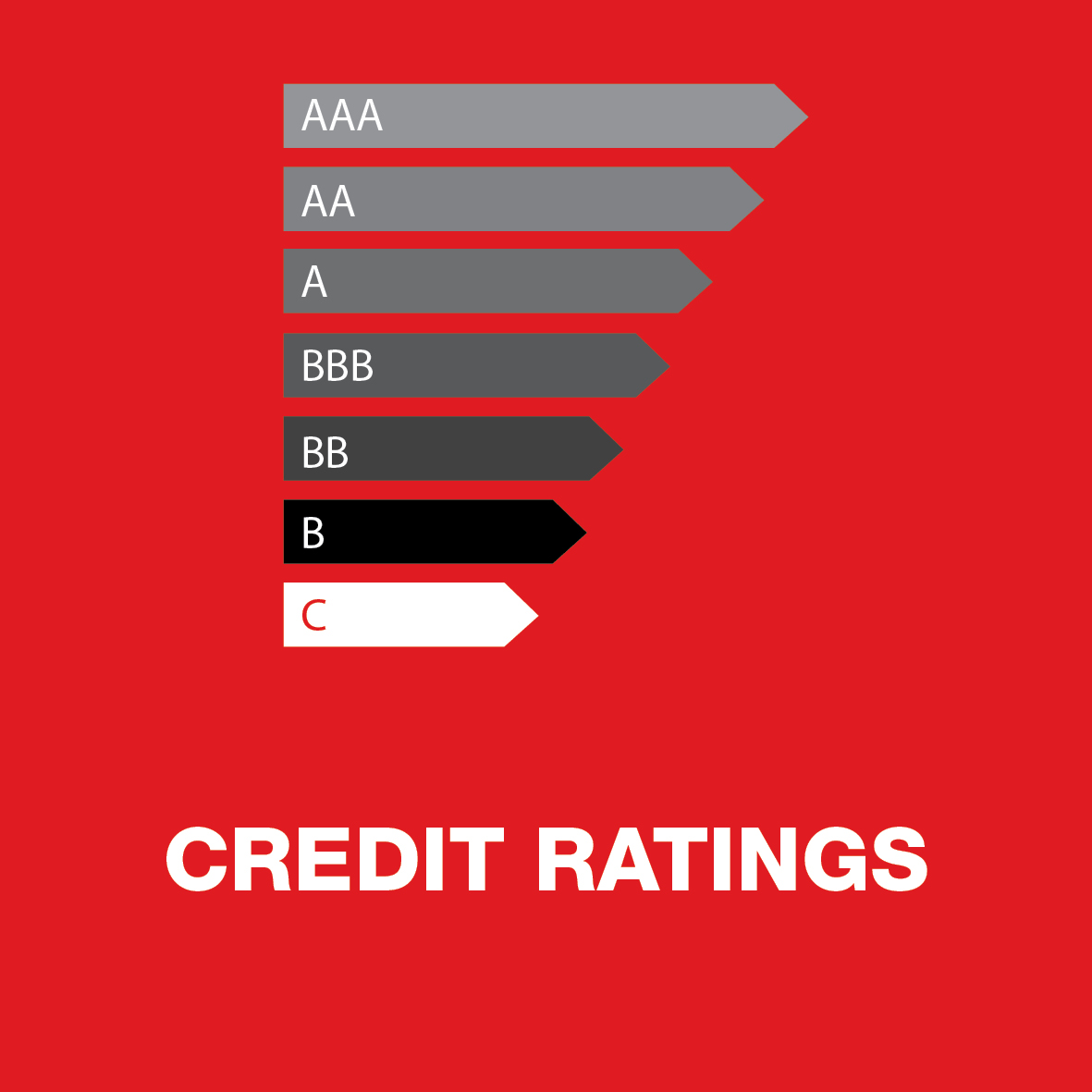Rating Types
Corporate Scorecard provides credit ratings for a range of organisations across finance, insurance, government and corporate sectors. Our reports clearly identify the specific type of rating, together with the assessment date, scope, sources of information, fee arrangement, and rating qualifications (if necessary). Here below are the different types of ratings we issue.
Credit Ratings
Credit Ratings are an opinion on the entity’s (corporate or financial institution) capacity to discharge all liabilities incurred in the ordinary course of the business on an ongoing basis and in a timely manner.
Issue Ratings
Issue Ratings are an opinion on the entity’s (corporate or financial institution) capacity to discharge obligations associated with a specific financial commitment (‘issue’) on an ongoing basis and in a timely manner.
Commitment Ratings
Commitment Ratings are an opinion on the entity’s (corporate or financial institution) operational and financial capacity to undertake and deliver a specific contractual commitment, of a pre-determined value and over a predetermined time period.
Insurer Credit Rating
Insurer Credit Rating (ICR)1 is a forward-looking opinion about an insurer’s capacity to discharge all liabilities incurred in the ordinary course of the business on an ongoing basis and in a timely manner.
Financial Strength Rating
Financial Strength Rating (FSR)1 is a forward-looking opinion about the financial strength of an insurer, with respect to its ability to pay all claims under its insurance policies. The FSR denotes the financial strength of an insurer only with respect to claims of its policy holders, and not to meet its non-policy obligations (e.g. bank borrowings or bonds or subordinated debt etc.). The FSR and ICR differentiates the insurer’s credit worthiness from the perspective of a policy holder and that of a non-policy holder.
Rating Engagement
The ratings could be private or public based on scope of the engagement. The Credit Rating and Commitment rating may also be assigned additional markers.
Conditional Rating (#)
A Conditional Rating is used where Equifax Credit Ratings & Research has rated an entity on the basis of significant risk factors and/or report qualifications, with recommendations providing one or more conditions precedent and/or mitigation action(s) to reduce identified uncertainty and risk.
Provisional Rating (*)A Provisional Rating is used when the most recent financial figures are based on draft management accounts or are deemed out-of-date. Entities with a provisional rating should be re-evaluated as soon as finalised financial statements become available.
Indicative Rating (^)An Indicative Rating is used where Equifax Credit Ratings & Research is engaged to conduct preliminary analysis only, and as such a credit rating assignment would require a more detailed and comprehensive investigation and due diligence assessment prior to the provision of our professional opinion.
System Rating (~)A System rating is derived from a quantitatively driven, scientifically based and empirically validated model, based on the information available at the time of the assessment of an entity. System ratings are derived using Risk Assessment Platform (RAP), which is an online tool and are not reviewed by an analyst or a ratings committee."

 Login
Login